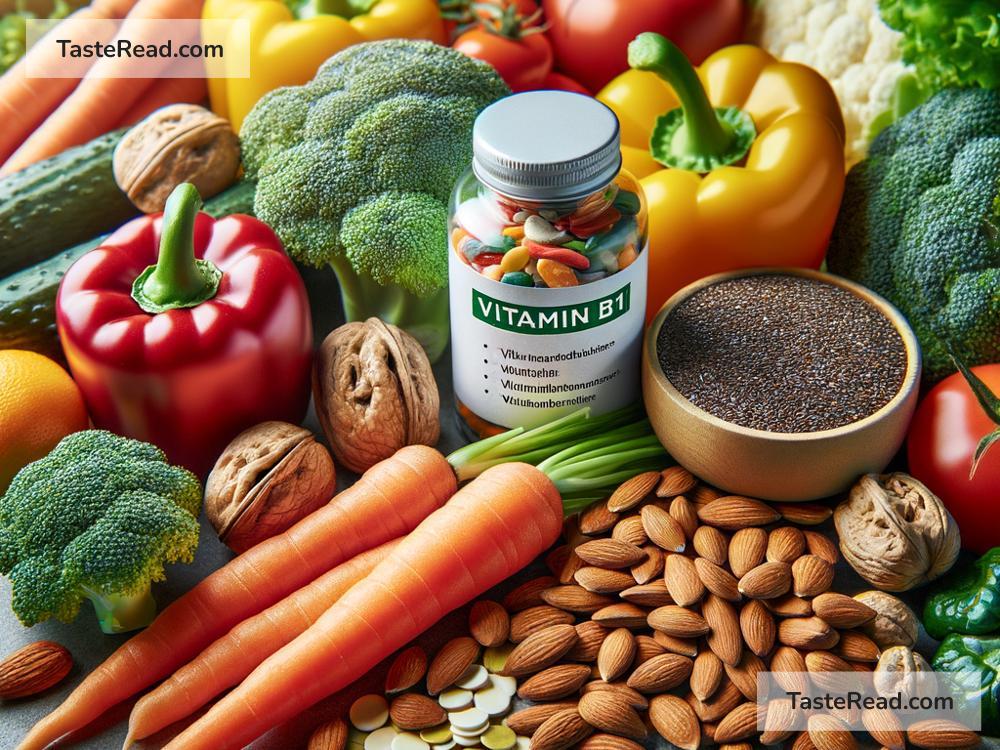The Role of Vitamin B11 in Metabolic Health: What You Need to Know
When it comes to your health, vitamins play an important role in keeping your body strong and running smoothly. You’ve probably heard about Vitamin C or Vitamin D, but today we’re going to talk about one that’s not as well-known: Vitamin B11. Don’t worry if you’ve never heard of it before—it’s not a household name like other vitamins, but it plays a key role in your body, especially when it comes to your metabolism.
In this blog, we’ll explain what Vitamin B11 is, why it’s important, and how it helps your metabolic health (in simple terms).
What Is Vitamin B11?
First, let’s get clear on what Vitamin B11 is. Vitamin B11 is also known as folinic acid (not to be confused with folic acid, which is Vitamin B9—it’s closely related but not the same). Folinic acid is a form of Vitamin B11 that your body uses for many important processes.
Vitamin B11 is part of the B-family of vitamins, which are essential for converting food into energy. These vitamins play important roles in breaking down carbohydrates, fats, and proteins to give your body the fuel it needs to function properly.
While Vitamin B11 is not typically mentioned as much as others like B6 or B12, it still has unique benefits for your body, especially when we’re talking about metabolic health.
Why Does Metabolic Health Matter?
Before diving into Vitamin B11, let’s quickly discuss what metabolic health means. Simply put, metabolism is the process by which your body converts food into energy. Your metabolic health determines how efficiently your body carries out this process.
Good metabolic health is crucial for energy levels, weight management, and overall well-being. Poor metabolic health, however, can lead to issues like diabetes, obesity, and fatigue. Vitamins, including Vitamin B11, are key nutrients that help keep your metabolism running like a well-oiled machine.
The Role of Vitamin B11 in Metabolic Health
Vitamin B11 works behind the scenes in several important ways to support metabolic health. Here are the main ways it helps:
1. Supports the Production of Energy
Vitamin B11 helps your cells produce energy more efficiently. Inside your cells, small “power plants” called mitochondria turn the food you eat into usable energy. Vitamin B11 plays a role in this process by helping enzymes (the body’s helpers) function properly during energy production. Without enough Vitamin B11, your cells may struggle to produce energy, leaving you feeling tired and sluggish.
2. Helps with DNA Repair and Cell Growth
Your body constantly repairs and replaces damaged cells, and healthy DNA is essential for this process. Vitamin B11 assists in the creation and repair of DNA, which is important not just for cell growth, but also for keeping your metabolism stable. Healthy cells mean better functioning organs and systems in the body, all contributing to balanced metabolic health.
3. Contributes to Healthy Red Blood Cells
Vitamin B11 supports the production of red blood cells. These cells carry oxygen throughout your body, which is critical for your metabolism. Oxygen is needed for your body to “burn” food into energy. If you don’t have enough Vitamin B11, you might experience anemia, fatigue, or difficulty staying active—all signs that your metabolism isn’t operating as it should.
4. A Key Player in Detoxification
Your metabolism doesn’t just create energy—it also helps remove waste and toxins from your body. Vitamin B11 plays an important role in detoxification by supporting the liver and assisting with the breakdown of harmful substances. This process helps you feel energized and keeps your body working efficiently.
How to Get Enough Vitamin B11
Since our bodies don’t produce Vitamin B11, we need to get it from food or supplements. Fortunately, foods rich in folinic acid are readily available. Here are some top sources of Vitamin B11:
- Leafy Greens: Spinach, kale, and Swiss chard
- Legumes: Lentils, chickpeas, and beans
- Liver: Beef or chicken liver is particularly rich in Vitamin B11
- Fortified Foods: Some cereals and bread may contain added folinic acid
If you’re not getting enough through your diet, supplements can also help. Always consult a doctor before taking supplements, as getting the right dosage is important.
Signs You Might Be Low on Vitamin B11
If you don’t get enough Vitamin B11, your metabolism might slow down, and your body could struggle with energy production. Signs of deficiency may include:
- Feeling tired all the time
- Poor focus or memory
- Anemia (low red blood cell count)
- Trouble recovering from illness
The good news is that Vitamin B11 deficiencies are rare if you eat a balanced diet, but it’s always good to be aware of these symptoms if you’re not feeling your best.
Conclusion
Vitamin B11 may not get the spotlight like some other vitamins, but it’s a powerful ally in keeping your metabolism healthy. From producing energy to repairing cells, Vitamin B11 helps your body stay strong and active.
Make sure you’re eating enough fresh, nutrient-rich foods to get your daily dose of Vitamin B11. When combined with a healthy lifestyle and regular exercise, this humble nutrient can make a big difference in how you feel each day.
Your metabolism works hard for you—why not give it the support it needs? Vitamin B11 is one way you can help your body stay at its peak performance!
Hope you found this article helpful! Let us know in the comments: Have you heard of Vitamin B11 before? What are your favorite Vitamin B-rich foods?


